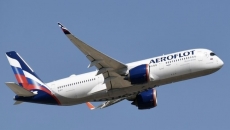VANCOUVER - A coalition of Canadian groups is calling on Alaska's governor to stop the state's harvest of Canadian-bound salmon, while it criticizes the international treaty that prevents overfishing of Pacific salmon.
Watershed Watch Salmon Society and three other groups say they have written to Gov. Mike Dunleavy alerting him to a report that shows Alaskan boats intercepted 650,000 Canadian-origin sockeye last summer.
The society and SkeenaWild Conservation Trust commissioned the report, which says only 110,000 sockeye were commercially harvested in all of B.C. in 2021, and the coalition questions why the Pacific Salmon Treaty is failing to address issues of interception and overfishing.
A statement from the coalition says the Pacific Salmon Treaty between the United States and Canada was signed in 1985 to ensure both countries receive benefits equal to the production of salmon in their waters, yet the treaty's core principles are not being met.
No one from Dunleavy's office was immediately available for comment, but the groups say they hope to meet with the governor to discuss their concerns and possible solutions.
Those include moving Alaskan boats out of the migration paths of Canadian-bound fish and immediately releasing bycatch species such as chum, pink and steelhead with the "least possible harm."
Greg Taylor, the fisheries adviser for Watershed Watch and SkeenaWild, says they want the governor to take their concerns seriously.
“Fortunately, to protect B.C. wild salmon swimming through Alaskan water, Alaskans don’t need to stop fishing. They simply need to shift their harvest efforts to inside waters where the majority of the southeast Alaska seine fleet already fishes and where they can target Alaskan salmon populations."
The Department of Fisheries and Oceans has said that many B.C. salmon populations are declining to historic lows because of habitat loss, climate change and fishing pressures.






